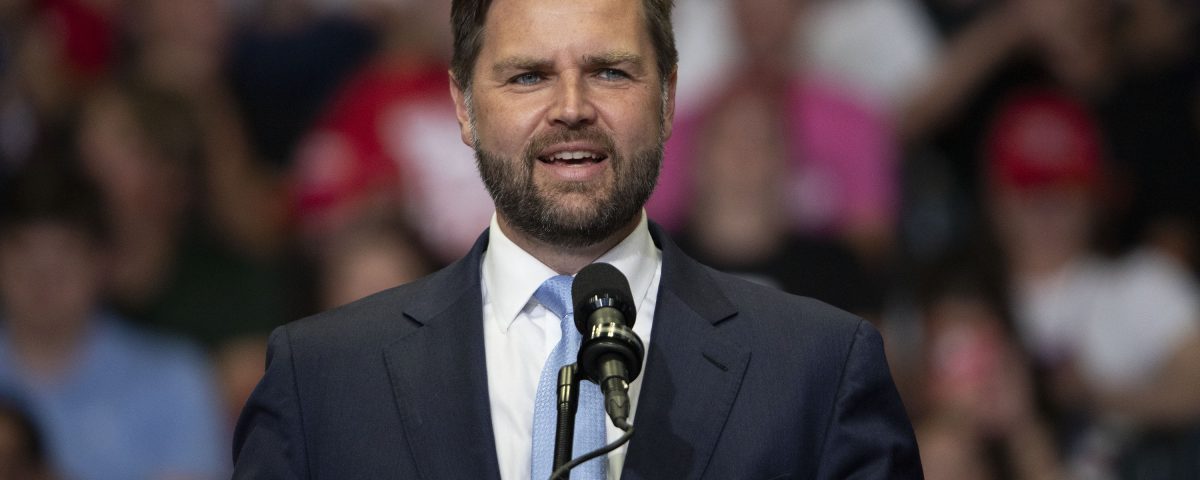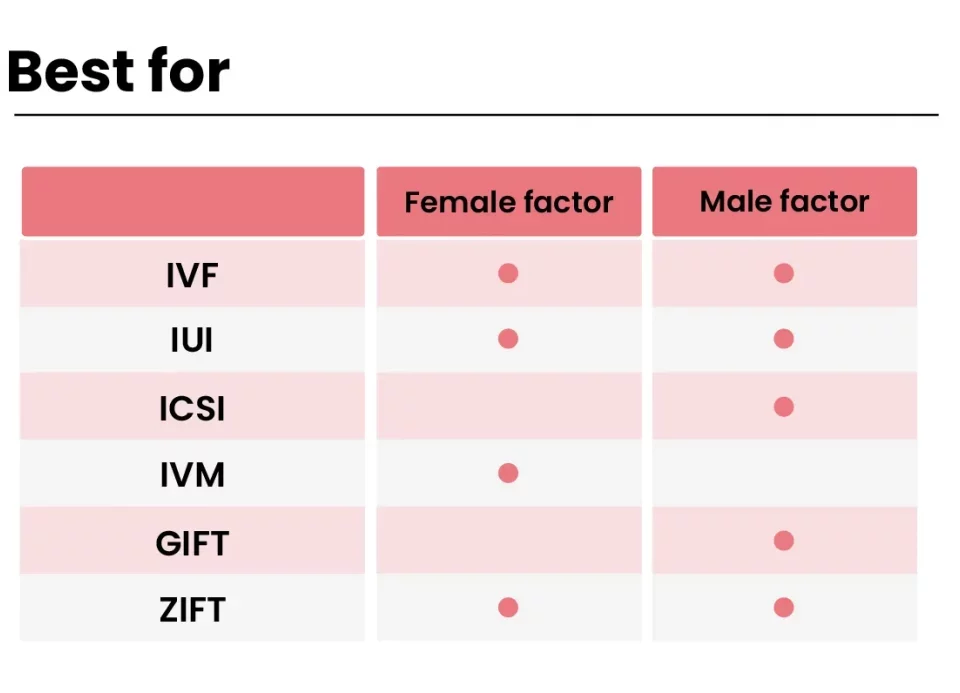
Is IVF Haram? Exploring Islam’s Take on In Vitro Fertilization
April 21, 2025
What Is an IVF Baby?
April 22, 2025What Did JD Vance Say About IVF? A Deep Dive into His Views and What They Mean for You

What Did JD Vance Say About IVF? A Deep Dive into His Views and What They Mean for You
In recent years, in vitro fertilization (IVF) has become a hot topic in American politics, especially as debates about reproductive rights take center stage. One name that keeps popping up in these conversations is JD Vance, the Ohio senator and 2024 Republican vice presidential nominee. His statements on IVF have sparked curiosity, confusion, and even heated arguments. So, what exactly did JD Vance say about IVF? Why does it matter? And how might his views shape the future for families hoping to grow through fertility treatments? Let’s unpack it all in a way that’s easy to follow, with fresh insights and a few surprises along the way.
JD Vance’s Public Statements on IVF: The Highlights
JD Vance hasn’t been shy about sharing his thoughts on family, fertility, and reproductive issues. As a senator and a public figure, his words carry weight, especially since he’s tied to the Trump campaign. Here’s a rundown of what he’s said about IVF based on his interviews, voting record, and public appearances up to April 2025.
In February 2024, Vance spoke with WCMH-TV, an Ohio NBC affiliate, after the Alabama Supreme Court ruled that frozen embryos created through IVF are legally considered children. This decision sent shockwaves through the fertility community, raising fears that IVF could become harder to access. Vance’s response? “My view is babies are good, families are good. And I want there to be as much access to fertility treatment as possible.” He added that he, former President Donald Trump, and “pretty much every Republican I know” support fertility treatments like IVF. On the surface, it sounds like a clear thumbs-up for IVF, right?
Fast forward to a July 2024 interview with Megyn Kelly, where Vance doubled down: “Of course, we want to make it easier for moms and dads to choose life if they’re in a terrible situation where they have fertility problems.” Again, this paints him as a cheerleader for IVF—someone who sees it as a tool to help families grow.
But here’s where things get tricky. Despite these pro-IVF comments, Vance’s actions in the Senate tell a slightly different story. In June 2024, he voted against the “Right to IVF Act,” a Democratic-led bill aimed at protecting IVF access nationwide and making it more affordable. Only two Republicans supported it, and the bill fell short of the 60 votes needed to pass. Vance also missed a similar vote in September 2024, choosing to attend a campaign rally instead. Critics jumped on this, accusing him of flip-flopping. So, what gives?
Digging Deeper: The Voting Record vs. the Rhetoric
Vance’s votes—or lack thereof—have fueled plenty of debate. The “Right to IVF Act” would’ve ensured that no state could ban IVF and required insurance companies to cover it. Sounds like a win for families struggling with infertility, doesn’t it? Yet Vance said no. Why?
In an August 2024 CNN interview, he explained his stance: “I don’t want Christian hospitals or Christian charities to be forced to do something they don’t want to do.” He framed his vote as a defense of “religious liberty,” arguing that mandating IVF access could clash with the beliefs of some faith-based institutions. Instead, he pointed to Republican-led efforts, like the “IVF Protection Act” he co-sponsored, which would’ve penalized states banning IVF by cutting their Medicaid funds—without forcing anyone to provide the service.
This tension between his words and votes is a big reason people are scratching their heads. On one hand, Vance says he’s all about helping families have babies. On the other, he’s wary of laws that might step on religious toes. It’s a balancing act that leaves some wondering: Does he really support IVF, or is he just playing both sides?
What’s the Real Impact of His Stance?
Let’s break this down with a simple checklist to see how Vance’s position might affect you:
✔️ Pro-IVF Talk: Vance’s public statements suggest he wants IVF to be available. If you’re hoping to use IVF, this might sound reassuring.
❌ Anti-Mandate Votes: His rejection of federal protections could mean IVF stays vulnerable to state-level restrictions—like what happened in Alabama.
✔️ Religious Liberty Angle: If you value faith-based freedoms, his stance might align with your priorities.
❌ Affordability Gap: By voting against bills that would’ve made insurance cover IVF, he’s not tackling the high costs—often $12,000 to $25,000 per cycle.
The takeaway? Vance seems to like the idea of IVF but isn’t keen on forcing it to be accessible everywhere. That’s a nuance worth keeping in mind.
The Bigger Picture: Vance’s Views on Family and Fertility
To really understand Vance’s take on IVF, we need to zoom out and look at his broader beliefs about family. Back in 2021, while running for Senate, he made waves on Fox News with Tucker Carlson, saying the country is run by “childless cat ladies” who don’t have a “direct stake” in its future. (Cue the internet memes and celebrity clapbacks from Jennifer Aniston and Taylor Swift fans!) He’s also pushed “pro-natalist” ideas—think policies that encourage people to have more kids, like tax breaks for parents or even extra votes for families with children.
Where does IVF fit into this? For Vance, it’s a tool to boost birth rates, but only if it aligns with his vision of “traditional” families. In a 2017 Heritage Foundation report he endorsed, one essay criticized IVF for letting women delay motherhood past their “most fertile years.” Vance didn’t write that part, but his introduction praised the report’s focus on culture and family. Critics say this hints at a deeper skepticism about IVF’s role in modern life—especially if it’s used by single women, older moms, or LGBTQ+ couples, groups he’s rarely mentioned in his pro-family rhetoric.
A Quick Poll: What Do You Think?
Let’s pause for a second. How do you feel about Vance’s views so far?
- A: He’s genuinely pro-family and just wants flexibility for IVF.
- B: He’s saying one thing but doing another—can’t trust him on IVF.
- C: I’m not sure yet; I need more info.
Drop your pick in the comments—I’d love to hear where you land!
What Experts Say: The Science and Ethics of IVF
IVF isn’t just a political football; it’s a lifeline for millions. About 1 in 7 couples in the U.S. struggle with infertility, according to the CDC. IVF, which involves fertilizing an egg in a lab and transferring the embryo to the uterus, has helped over 8 million babies be born worldwide since 1978. But it’s not without controversy.
Some religious groups—like the Catholic Church—oppose IVF because it often involves creating multiple embryos, some of which get discarded. That’s a sticking point for anti-abortion advocates who see embryos as human life. Vance, a Catholic convert, hasn’t explicitly echoed this view, but his “religious liberty” argument nods in that direction.
On the flip side, fertility experts argue IVF is fundamentally pro-life. “It helps couples have children that wouldn’t otherwise be born,” says Dr. Eve Feinberg of Northwestern University. Studies back this up: a 2023 report from the American Society for Reproductive Medicine found IVF success rates have climbed to 40-50% per cycle for women under 35, making it a game-changer for family-building.
So, where does Vance land in this debate? He’s not anti-IVF outright, but his hesitance to lock in federal protections suggests he’s weighing these ethical questions more than he lets on.
Three Fresh Angles You Haven’t Heard About
Most articles on Vance and IVF stick to his votes and soundbites. But there’s more to explore—stuff that’s flown under the radar. Here are three angles that add depth to the story.
1. The Economic Blind Spot: IVF as a Class Issue
IVF’s price tag is a monster—up to $25,000 per cycle, with many families needing multiple tries. Vance talks a big game about supporting “normal people” (his words from a 2021 tweet bashing universal daycare). Yet his votes against insurance mandates leave IVF out of reach for working-class families—the very folks he claims to champion in his book Hillbilly Elegy. Compare this to countries like Denmark, where public funding covers three IVF cycles, and their birth rates have stabilized. Could Vance’s stance widen America’s fertility gap between the haves and have-nots? It’s a question worth asking.
2. The Silence on LGBTQ+ Families
Vance loves talking about “traditional” families, but he’s mum on how IVF helps same-sex couples or single parents. In 2023, he sponsored a bill banning gender-affirming care for minors and opposed the Respect for Marriage Act, citing religious concerns. This pattern suggests his IVF support might not extend to non-traditional setups. With 19% of LGBTQ+ adults more likely to want kids than their straight peers (per a 2021 UCLA study), his silence speaks volumes. Is his IVF enthusiasm conditional?
3. The Alabama Fallout: A Real-World Test Case
The Alabama ruling didn’t just spark headlines—it froze IVF access for months as clinics scrambled to avoid lawsuits. Vance called it a “ridiculous hypothetical” when pressed on CNN, but families there lived it. A 2024 survey by Resolve: The National Infertility Association found 1 in 3 Alabama IVF patients delayed treatment due to legal uncertainty. Vance’s state-focused approach (let Alabama figure it out) ignored this chaos. What happens if more states follow suit? His hands-off vibe could leave couples in limbo.
How Vance’s Views Stack Up: Trump, Democrats, and Beyond
Vance isn’t alone in this debate—his stance ties into bigger political currents. Let’s compare:
- Donald Trump: After the Alabama mess, Trump posted on social media demanding IVF stay available, later promising free IVF for all if re-elected (August 2024). Vance has scrambled to align with this, but his votes lag behind Trump’s rhetoric.
- Democrats: They’ve pushed hard for federal IVF protections, with bills like the “Right to IVF Act” and vocal support from figures like Tim Walz, who’s shared his own fertility struggles. They frame Vance as anti-choice, tying his IVF votes to broader reproductive rights battles.
- Public Opinion: A 2024 Pew Research poll found 78% of Americans support IVF access, cutting across party lines. Vance’s mixed signals risk alienating even GOP voters who see IVF as a family-friendly win.
Here’s a quick table to sum it up:
| Player | IVF Stance | Key Move |
|---|---|---|
| JD Vance | Pro-IVF but anti-mandate | Voted against Right to IVF Act |
| Donald Trump | Full support, promises funding | Pushed Alabama to preserve IVF |
| Democrats | Strong federal protections | Championed Right to IVF Act |
| Public | Overwhelmingly pro-IVF | 78% back access (Pew, 2024) |
What This Means for You: Practical Takeaways
Okay, enough politics—how does this affect you? Whether you’re considering IVF or just curious, here’s what Vance’s stance could mean in real life, plus some tips to navigate it.
If You’re Planning IVF
- Check Your State Laws: Vance wants states to call the shots, so your access depends on where you live. Alabama’s a warning sign—stay updated on local rulings.
- Budget Smart: Without federal insurance mandates, costs are on you. Start a savings plan or look into clinics with payment options. Average cost per cycle: $15,000, per the American Society for Reproductive Medicine.
- Explore Alternatives: If IVF’s at risk, options like intrauterine insemination (IUI)—less invasive and cheaper at $300-$1,000 per cycle—might be worth a shot.
Steps to Advocate for Yourself
- Talk to Your Doctor: Get the lowdown on your fertility options and any legal hurdles in your area.
- Join a Community: Groups like Resolve offer support and updates on IVF laws. You’re not alone in this.
- Push Back: Write to your senator—Vance included. Public pressure sways votes. Keep it simple: “I want IVF protected. What’s your plan?”
A Little Quiz: Are You IVF-Ready?
Answer these quick yes/no questions to gauge where you stand:
- Do you know your state’s IVF laws?
- Have you saved up for at least one cycle?
- Are you okay with uncertainty if laws change?
If you’re mostly “no,” no sweat—use the tips above to get started!
The Emotional Side: Stories That Hit Home
Numbers and votes are one thing, but IVF is personal. Take Sarah, a 34-year-old from Ohio (Vance’s home state). After three miscarriages, she turned to IVF in 2023. “It was our last hope,” she says. “When I heard Vance voted against that bill, I felt betrayed. He’s from here—doesn’t he get it?” Her twins were born in January 2025, but she worries for others still waiting.
Then there’s Mark and James, a gay couple in Pennsylvania. They used IVF with a surrogate in 2024. “Vance talks about families, but what about us?” Mark asks. “His silence makes me think we don’t count.” Their son arrived in March 2025, but they’re nervous about future restrictions.
These stories remind us: IVF isn’t just policy—it’s people’s lives.
The Future of IVF: What’s Next with Vance?
As of April 2025, Vance’s role as Trump’s VP pick keeps him in the spotlight. If the GOP wins in November, his influence could grow. Trump’s free-IVF pledge sounds bold, but Vance’s state-focused, anti-mandate leanings might water it down. Imagine this: federal funding gets approved, but states like Alabama or Texas opt out, citing “liberty.” Families in red states could lose out while blue states cash in.
On the flip side, Democrats aren’t letting up. Bills to protect IVF keep popping up, and public support is rock-solid. Vance might have to bend if the pressure mounts—or risk looking out of touch.
A Wild Card: New Research on IVF’s Impact
Here’s something fresh: a 2024 study from the University of California found that every dollar spent on IVF saves $7 in long-term healthcare costs (think fewer premature births). It’s a stat Vance, an economics buff, might not ignore. Could this sway him toward broader support? Time will tell.
Wrapping It Up: Why Vance’s IVF Stance Matters
JD Vance’s take on IVF isn’t black-and-white. He’s said he’s for it—babies are good, families are great—but his votes and silences hint at limits. He’s pro-IVF until it clashes with religious freedom, costs taxpayers, or strays from his “traditional” family vibe. For you, that means a future where IVF’s fate might hinge on your zip code, your wallet, and who’s in power.
What’s clear is this: Vance’s words and actions don’t fully align, and that gap leaves room for doubt. Whether you’re rooting for IVF access, wrestling with its ethics, or just watching from the sidelines, his stance shapes the conversation. So, keep an eye on him—and maybe drop him a note. Your voice could tip the scales.
Got thoughts? Share them below—let’s keep this chat going!

